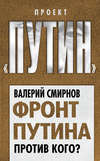Loe raamatut: «Mississippi Outlaws and the Detectives»
PREFACE
In presenting to the public another volume of my detective stories, I would call the attention of the reader to the fact, that these stories are literally written from facts and incidents which have come under my own observation, or been worked up by officers acting directly under my instructions.
The Mississippi River has for many years – more especially since the close of the war – been infested by a class of men who never would try to get an honest living, but would prey upon their neighbors or attack the property of southern railroads and express companies; these marauders could be seen any day prowling along the banks of the Mississippi, in fact, the shores and immediate neighborhood were peopled by just such a class, who cared not how they obtained a living; for the crimes they committed, they often suffered infinitely worse punishment, more so than any suffering which could have been entailed on them from leading a poor but honest life.
The story of the "Mississippi Outlaws and the Detectives" is written to illustrate incidents which took place in the southern section of the country at no very remote date.
"Don Pedro and the Detectives" is another story of detective experience, which came under my own observation and management; it is a truthful narrative, and shows that some men are worse than known criminals, and can squander the money they have obtained by false pretenses, in a very lavish manner.
"The Poisoner and the Detectives" is a well-known bit of detective experience, which, when read, will be recognized by any one who ever takes an interest in crime, and the bringing to justice its perpetrators.
The reader must remember that fictitious names are used in all of these stories, otherwise the facts are plainly and truthfully told as they occurred.
ALLAN PINKERTON.
April, 1879.
THE MISSISSIPPI OUTLAWS AND THE DETECTIVES
CHAPTER I
A daring Express Robbery. – Mr. Pinkerton appealed to. – Cane-brakes and cane-fed People. – Annoying Delays and Amateur Detectives.
The southern and border states, since the close of the war of the rebellion, have been the frequent scenes of extensive and audacious robberies. This has been largely owing to the sparsely-settled condition of certain districts, to the disorder and lawlessness generated by the war, and to the temptations offered by the carelessness of many persons having large sums intrusted to their care in transit through lonely and desolate localities.
The express companies have always been favorite objects of attack by thieves of every grade, from the embezzling cashier to the petty sneak-thief, and some of the operations connected with the detection of this class of criminals are among the most difficult and dangerous that have ever been intrusted to me. Probably a no more reckless and desperate body of men were ever banded together in a civilized community than those who were brought to my attention in 1871 by the Southern Express Company's officers in Memphis; and I consider the successful termination of my efforts in this case as of the greatest value to the people of the South and West. The whole affair was conducted with such a limited force, and under such adverse circumstances, that I take pride in here recording the history of the affair and my connection with it. Though I maintained a general supervision of the operation, my eldest son, William A. Pinkerton, was the person having immediate charge of the matter, and to his energy, perseverance, and sagacity is mainly attributable our success.
Some time in the latter part of July, 1871, an express messenger on the Mobile and Ohio Railroad was overpowered by three men at Moscow, Kentucky, and his safe was robbed of about sixteen hundred dollars. The manner of effecting the robbery was a very bold one, showing the presence of men of experience in crime. The loss was not heavy, but the company made every effort to discover the robbers, in the hope of bringing them to a severe punishment as a warning to other criminals. In spite, however, of the efforts of two of my men, who were immediately sent to the scene of the robbery, the guilty parties escaped into the almost impenetrable swamps along the Mississippi River, and the chase was reluctantly abandoned, as it was impossible to tell where they would come out or cross the river. The amount stolen was not sufficiently large to warrant the expenditure of much time or money in the pursuit of the thieves, and my men were soon wholly withdrawn from the operation. In order, however, to guard against a repetition of such a raid, an extra man was placed in each express car to act as guard to the regular messenger. It was considered that two men, well armed, ought to be surely able to protect the company against further loss, and everything ran smoothly until October 21, 1871. At this time, the money shipments by express were very heavy, as a rule, and orders were given that special care should be exercised by all the employés having money packages in charge.
The northern-bound train on the Mobile and Ohio Railroad was due at Union City, Tennessee, about half-past seven o'clock in the evening. At this point the northern and southern-bound trains usually passed each other, and stopped long enough for supper, the train arriving first being the one to take the side track ready to pull out. Saturday evening, October 21st, the northern-bound train arrived on time, stopped at the station long enough to let the passengers go to supper, and then took the side track to await the arrival of the train bound south. As soon as the side track was reached the conductor, engineer, fireman, brakeman, and express messenger went to supper, leaving the train deserted except by the express guard, named George Thompson, and a few passengers. The local express agent came up at this moment, gave his packages to Thompson, receiving his receipt therefor, and returned to the station. This action was directly contrary to the rules of the company, which forbade the messenger to leave the car during his whole run, or to go to sleep; also, the guard was forbidden to transact any business, or to have possession of the safe key. Martin Crowley, the messenger, had given his key to Thompson, however, to enable him to attend to the business of the local agent while Crowley was away at supper. In accordance with Thompson's request, Crowley sent a negro porter to the express car with Thompson's supper on a tray, and the porter, after handing the tray to Thompson, turned to walk away. As he did so, he saw two men spring into the partly open door of the express car, and, almost immediately, the train began to back. The negro knew that something was wrong, and he hurried to the station to give the alarm. By the time he arrived there, however, the train was backing at a moderate speed, and was well beyond the reach of pursuit on foot.
Meantime, the guard, having received his supper from the negro porter, turned his back to the door to set the tray down. Before reaching the desk, he heard a noise at the door, and turning, he was confronted by two men, one of whom held a revolver at his head, while the other seized his throat. Thompson was a young man, and, not being accustomed to meet such hard characters, he was badly frightened. He immediately gave up the safe key and helped one of the men to unlock the safe. Having taken all the money out of the safe, one of the robbers took also the contents of Thompson's pocket-book; but here the other man interfered, insisting that the guard's money be returned to him, which was done. No conversation took place, but when the safe had been carefully examined and all the money it contained taken, one of the men stepped to the door and swung a lantern once or twice. The train, which had been backing at a moderate rate of speed, now stopped, and the two men jumped off, telling Thompson to stay where he was and keep quiet. When the conductor, engineer, and other persons, whom the porter had alarmed, reached the train, they found everything in order except the safe, into which poor Thompson was vainly peering in the hope of discovering that some portion of the funds might have been overlooked. The men had disappeared in the thick woods, and no trace of them was found except a small carpet-bag containing potatoes and bread. The amount missing from the safe was about six thousand dollars in currency.
Although the robbery was at once reported to Mr. M. J. O'Brien, the General Superintendent, by telegraph, no action seems to have been taken until the following Wednesday – four days later – when Mr. O'Brien sent me a brief telegram announcing the robbery, and requesting me to come to Union City in person, if possible, and if not, to send my eldest son, William A. Pinkerton. The telegraph was used freely for the next two days, and while my son was gathering clues and making his preparations, we learned most of the facts by letter. William arrived in Union City on Saturday, just one week after the robbery had been committed, and he instantly began to gather information from every available source. Except the statements of the negro porter and Thompson, the guard, as condensed in the account heretofore given, little information could be obtained, as so few persons were about the train when it began to move off. While two or three had seen the men who had entered the car, no one had seen who had run the locomotive, and there was, therefore, no certainty as to the number of persons engaged in the job. One passenger had seen two men walking toward the engine in a suspicious manner, and, as his description of these two was entirely different from that given of the men who had entered the car, it was fair to presume that they had been a part of the gang. Still, no one had seen them get on the engine, and it was not certain that they had had anything to do with the affair. At the end of three days, however, William had collected sufficient information to satisfy himself that either four or five men had been at work together; and, by collating the various descriptions he received, he obtained a pretty fair idea of the party.
The first thing which struck him was the similarity of this robbery to the one which had occurred exactly three months before at Moscow, Kentucky. The appearance of the men and their actions had been precisely like those of the Moscow party, and it was evident that they had been emboldened to a second venture by the ease with which they had carried through their former scheme. One thing was imperative: the capture of the whole gang would be necessary to insure the safety of the express company's property in the future. Indeed, it was a mere piece of good fortune that the loss in this instance was not irreparable, for the amount of money carried on the southern-bound train was eighty thousand dollars, and the robbers would have obtained this large amount if the southern-bound train had chanced to arrive first. The robbery was clearly one which no common tramp or sneak-thief would have dared to attempt, and William saw immediately the difficulties of his work. Before proceeding with the incidents of the operation, I must give some idea of the country and the people living there, since no-one would otherwise comprehend one-half of the obstacles and dangers which were involved in a search for the criminals in that vicinity.
The southwestern part of Kentucky and the northwestern part of Tennessee are about as desolate portions of the world as are inhabited by a civilized people. There seems to have been some convulsion of the earth at this point, which is sunk so far below the general level of the whole country as to make it a perpetual swamp. The annual overflow of the Ohio and Mississippi lays the country under water for a distance of many miles, while even in the dryest season, the morasses, sunken lakes, and dense cane-brakes, render it almost impassable, except for people who have been thoroughly acquainted with the locality for years.
The sunken lakes are natural curiosities in themselves, and, although they have attracted considerable attention from scientific men, no satisfactory explanation of their causes and phenomena has been found. The country is full of game and the water is alive with fish, so that the necessities of life are easily obtainable. The cane-brakes are wonderful growths of bamboo cane, and they sometimes cover strips of country as much as seventy miles long. In the spring-time, the water rises to such a height that a skiff can navigate freely above and through the tops of the cane; but in dry weather, the stalks grow so closely together that the brake becomes impenetrable to man or beast, except by winding tortuously around the clumps through the comparatively thin portions of the undergrowth. To search for any one wishing to remain concealed therein is like the proverbial attempt to look for a needle in a hay-stack, since a man can pass within ten yards of another without seeing him or being aware of his presence. The only roads which traverse these places are mere cattle paths, which begin at no place and run nowhere; and, unless a man be thoroughly acquainted with the country, he can never tell where any given path will lead him.
The people around the towns, such as Hickman, Union City, Dyersburg, and Moscow, are a highly respectable and well-educated class; but in the low, swampy country, in the cane brake and along the river, they are not, as a rule, a very agreeable class to live among. Of course, here, as in all other places, there are many intelligent, reliable, honorable men, but the great mass of the cane-brake population are ignorant and brutal. The term which they apply to their stock is also eminently appropriate to designate the people: they are "cane-fed." It is the custom to turn the cattle into the cane to feed when it is young and tender, and, as the amount of nutriment thus obtained is not very large, the "cane-fed" animals bear about the same relation to grain-fed stock that the people in that vicinity bear to the residents of healthy, prosperous, and educated communities. The larger portion of the population may be classed as "poor whites," and they constitute a peculiar variety of the human species. The men are tall, loose-jointed, and dyspeptic; they bear a marked resemblance to the vegetable productions of the vicinity, being rapid of growth, prolific, and generally worthless. Their education consists mainly of woodcraft and rifle-shooting; their proficiency in both of these branches is sometimes astonishing, and it is frequently said of their most expert hunters that they seem to have been born shot-gun or rifle in hand. Accomplishments they have none, except the rare instances where a few tunes upon the banjo have been learned from the negroes. Their tastes are few and simple, – whisky, snuff, hog, and hominy being the necessities and luxuries of life; that is, whisky and snuff are the necessities, all other things being secondary considerations. In their sober moods, they are frank, rough, and courageous; yet, even then, there is little about them to excite other feelings than those of pity and aversion. When full of bad whisky, however, they are apt to become quarrelsome and brutal, so that no man can feel sure of his safety in their company. An affront, real or imaginary, will then be apt to cause bloodshed, even if the insulted party has to bushwhack his enemy from a secure covert on the roadside as he is returning to his home. Every man goes armed, and, though fair fights in broad daylight are rare, cold-blooded murders are not infrequent. The law is seldom invoked to settle private differences, and, in fact, the functions of the legal officials are practically very limited in their influence. If a coroner ever sits upon a corpse, it is understood that he has done his whole duty by recording a verdict that "the deceased came to his death at the hands of some person or persons unknown."
The women, like the men, are tall, thin, and round-shouldered. Up to the age of sixteen they sometimes are quite pretty, though sallow and lifeless always; after that period, they become gaunt, emaciated, and yellow. Whisky hath charms for them, also, but their favorite dissipation is snuff-dipping. They marry very early and bear children nearly every year, so that the size of many of these West Tennessee families is often enormous. The father exercises patriarchal control over his whole household until the daughters are married and the sons old enough and strong enough to defy the parental authority as enforced by a hickory rod. The wife never escapes the application of this potent instrument of marital discipline; and, indeed, should a husband fail to make frequent use of it for the correction of his better half, he would probably soon learn that his dutiful spouse could find a use for it on his own person.
Throughout this whole district, the people suffer from fever and ague for nine months of the year, and dyspepsia seems hereditary. Their physicians, however, usually require no further education than is requisite to attend fractured limbs and gun-shot wounds, the whole school of medicine being limited to three specifics: quinine, calomel, and whisky.
As before stated, it should be understood that the foregoing description applies to the majority of the inhabitants of the low swamp lands only, and not to the residents in and about the towns; even in the cane country itself are to be found occasionally men of education, ability, and good character, and to several of them William was largely indebted for assistance and information.
There was one redeeming feature also to the character of the "cane-fed" population; in the main they were honest, and they would do all in their power to break up a thieving gang, even if they had to hang a few of its members as a warning to the rest. I was thus able to trust them to a certain extent, though the fear which they had of this band of desperadoes rather kept their naturally honest impulses in check for a time.
William was thoroughly acquainted with the character of the people, and he knew what a difficult task had been set before him, especially as he was allowed no other detectives of my force to assist him, the express company being desirous of conducting the operation as economically as possible. Among the large number of men employed directly by the company were two or three good men, but the majority were even worse than useless, and the expense of the affair was finally much greater than as if only my own men had been employed. Besides the fact that William was thus continually working with strange men, he was harassed by large numbers of amateur detectives, to whose stories the company's officers too often lent a ready ear. Indeed, every express agent in Tennessee, Kentucky, and Missouri seemed impressed with the idea that he was a naturally gifted detective, and many were the annoying delays which resulted from their interference.
CHAPTER II
Difficulties. – Blind Trails and False Scents. – A Series of Illustrations showing the Number of Officious People and Confidence Men that often seek Notoriety and Profit through important Detective Operations.
The art of detecting crime cannot be learned in a day, nor can the man of business understand, without previous experience in the habits of criminals, the expedients which the boldest class of law-breakers adopt; hence none but skilled detectives can hope to cope with them. Yet often my clients insist on some certain method of procedure wholly contrary to my judgment and experience, until the total failure of their plan convinces them that there can be but one thoroughly successful mode of detection, namely, to submit the case to a skilled detective of character and standing, and allow him to act according to his judgment.
The range of investigation in such a case as this robbery will often extend from New York to San Francisco, and unless one mind gathers up the clues, classifies the information, and determines the general plan, there will be continual error and delay. Such a state of affairs frequently occurred during this operation, and much time and money were spent upon matters too trifling even for consideration.
The principal of a detective agency, from his long experience with criminals, learns the earmarks of different classes of men, and he is often able to determine the name of the guilty party in any given robbery by the manner in which the job was done. He can readily see whether a novice in crime was engaged, and also whether any collusion existed between the parties robbed and the criminals; and so, when he sees the traces of a bold, skillful, and experienced man, he knows that it is useless to track down some insignificant sneak-thief, simply because the latter happens to have been in the vicinity. Yet, neither will he slight the smallest clue if there is a bare chance that any valuable fact may be obtained from it. But the sine qua non is that he, and he alone, shall direct the whole affair. A divided responsibility simply doubles the criminal's opportunities for escape.
Among the many difficulties of the detective's work, none are more embarrassing than the early development of false clues. In the stories heretofore published, the direct steps leading to the detection and arrest of the criminals have been related, without referring to the innumerable other investigations, which were progressing simultaneously, and which, though involving the expenditure of much thought, time, and money, proved after all to be of no value whatever in developing any evidence in the case. In this operation, such instances were of frequent occurrence, and I propose to mention a few of them to show how wide is the range of the detective's inquiries, and also the annoying delays to which he is often subjected by the inconsiderate zeal and interference of outside parties. These latter may be – indeed, they generally are – well meaning people, anxious to serve the cause of justice; though, on the other hand, they are sometimes spiteful meddlers, striving to fix suspicion upon some personal enemy.
The plan of detection which alone can insure success, must be one which neither forgets nor neglects anything. In investigating any alleged crime, the first questions to be considered are: 1. Has any crime been perpetrated, and, if so, what? 2. What was the object sought thereby?
The matter of time, place, and means employed must then be carefully noted, and finally we come to consider: 1. Who are the criminals? 2. Where are they now? 3. How can they be taken?
The fact that a crime has been committed is generally apparent, though there have been cases in which the determination of that point requires as much skill as the whole remainder of the operation. Such was the case in the detection of Mrs. Pattmore's murder, related in my story of "The Murderer and the Fortune Teller." The object of a crime is also sometimes obscure, and, where such are the circumstances, the detection of the criminal is apt to be one of the most difficult of all operations. Having once solved these two difficulties satisfactorily, however, and having observed the relative bearings of time, place, and means to the crime itself, the question of individuals is the important one to be determined. It often happens that there is no concealment of identity, the problem to be solved being simply the way to catch the guilty parties; but, on the other hand, the greatest skill, experience, patience, and perseverance are sometimes required to discover, first of all, the persons engaged in the crime. Indeed, an operation is often divisible into two distinct methods of action, the first being to find out the identity of the criminals, the second to follow up and capture them.
In the course of a blind trail, such as we were obliged to travel in the case of this express robbery, it was impossible to know whence the men had come or whither they had gone; hence, I was forced to take up every trifling clue and follow it to the end. Even after I was satisfied in my own mind of the identity of the criminals, the agents and officers of the express company were continually finding mares' nests which they wished investigated, and the operation was sometimes greatly hindered on this account. As an example of the number of discouragements which the detective must always expect to encounter, I propose to mention some of the false scents which we were forced to follow during this operation.
Three or four days after William's arrival in Union City, he was informed by the superintendent of the express company having charge of the operation, that there was a young man in Moscow who could give important information relative to the first robbery at that place. This young man, Thomas Carr by name, was a lawyer who had once had fine prospects, but he had become very dissipated, and he finally had been taken seriously ill, so that he had lost his practice. On recovering his health he had reformed his habits, but he had found great difficulty in winning back clients, and his income was hardly enough to support him. On learning that this impecunious lawyer had valuable information, William strongly suspected that it would amount to little more than a good lie, invented to obtain money from the express company; nevertheless, he sent for the young man and heard his story.
According to Carr, a man named John Witherspoon had visited him about six weeks before, and had asked him whether he would like to get a large sum of money. Carr replied affirmatively, of course, and wished to know how it could be obtained. Witherspoon had said that the express company could be robbed very easily by boarding a train at any water-tank, overpowering the messenger, and making him open the safe. Witherspoon also had said that he and several others had robbed a train at Moscow some weeks before, and that they had got only sixteen hundred dollars, but that they should do better next time. He had asked Carr to go to Cairo and find out when there would be a large shipment of money to the South; then Carr was to take the same train and give a signal to the rest of the party on arriving at the designated spot.
On hearing Carr's story, William sent him back to Moscow with instructions to renew his intimacy with Witherspoon, and to report any news he might learn at once; in case it should prove to be of any value, the company would pay him well for his services. It is hardly necessary to add that Mr. Carr, having failed to get, as he had hoped, a roving commission as detective at the company's expense, was not heard from again, his bonanza of news having run out very quickly on discovering that no money was to be paid in advance.
The next case was a more plausible one, and William began its investigation with the feeling that something might be developed therefrom. It was learned that a former express messenger named Robert Trunnion, who had been discharged several months before, had been hanging around Columbus, Kentucky, ever since. While in conversation with the clerk of a second-class hotel, Trunnion had spoken of the ease with which a few determined men could board an express car, throw a blanket over the messenger's head, and then rob the safe. The clerk said that Trunnion had made the suggestion to him twice, and the second time he had given Trunnion a piece of his mind for making such a proposition. Trunnion had then said he was only fooling, and that he did not mean anything by it. William learned that Trunnion was then engaged in selling trees for a nursery at Clinton, Kentucky, and that he was regarded as a half-cracked, boasting fool, who might be anything bad, if he were influenced by bold, unscrupulous men. William therefore paid a visit to Mr. Trunnion, whom he found to be a very high-toned youth, too fiery-tempered and sensitive to submit to any questioning as to his words or actions. In a very brief space of time, however, his lordly tone came down to a very humble acknowledgment that he had used the language attributed to him; but he protested that he had meant nothing; in short, his confession was not only complete, but exceedingly candid; he admitted that he was a gas-bag and a fool, without discretion enough to keep his tongue from getting him into trouble continually; and, having clearly shown that he was nowhere in the vicinity of either robbery, he asked humbly not to be held responsible for being a born idiot. William was satisfied that the fellow had told the truth, and, after scaring him out of all his high-toned pride, he let him go, with a severe lecture on the danger of talking too much.
On the nineteenth of November, when the identity of the robbers had been fully established, William was called away to Iuka, Mississippi, on information received from Mr. O'Brien, the general superintendent of the express company, that a man named Santon had seen the leader of the party in that place, just a week before. Santon represented that he knew the man well, having been acquainted with him for years in Cairo, and that he could not be mistaken, as he had spoken with him on the day mentioned. William found that the man Santon was a natural liar, who could not tell the truth even when it was for his interest to do so. The descriptions of the various robbers had been scattered broadcast everywhere, and none of them were represented as over thirty-five years of age; yet Santon said that his man was over fifty years old, and that he had been a pilot on the Mississippi for years. This was a case – not an infrequent one, either – where people talk and lie about a crime for the sole purpose of getting a little temporary notoriety. Owing to various accidents and railway detentions, William lost three days in going to hunt up this lying fellow's testimony.




















